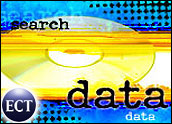As business and industry evolves and becomes increasingly complex, entrepreneurs, attorneys, bankers, accountants — virtually all professions — require methods to improve efficiencies. The 21st century is the digital age, and the era of online collaboration has arrived. Information retrieval through a secure Web site helps to manage the onslaught of paper in a complex transaction, protracted litigation, audit, medical evaluation or other record-heavy situation by streamlining and improving the process flow.

Dealing with housands upon thousands of pages is par for the course in business circumstances. Proper management of these documents is critical.
Professionals are frequently turning to secure Web-based repositories in order to analyze, organize and share documents. If every document relevant to a transaction, case or investigation is scanned and posted to a secure Web site, individuals in different locations can review the same information simultaneously.
Each member of the team can be reading and assessing essential material and collaborating on the best way to handle a given situation. Hundreds of thousands of documents can be accessed — saving tremendous time and energy in making copies or thousands of dollars in gathering people to a central location.
Electronic Repository
Web technology allows virtually any document to be stored electronically. The word “document” encompasses a broad spectrum — letters, claims, e-mails, photographs, medical records, depositions, spreadsheets, X-rays — even video clips and voice mail. These are all elements in business activities and court trials. Professionals, especially those with offices in several locations, can now rely on these high-tech capabilities to simplify the organization of documents and thus manage paperwork with much greater efficiency.
In today’s high-speed world, search functions provide the ability to immediately locate information that previously took hours, days, and even weeks to find. When properly cataloged and categorized online, information is available immediately. This technology offers numerous advantages. For example, in the legal field, one attorney can make notes on a document. Then, another attorney — with the proper permission — may view the document and see the other’s thought process.
The technology is so sophisticated that with multi-level security systems, assignments can be made so that individuals are linked to specific projects, cases, documents — and even to specific pieces (fields) of information. What one person sees is not necessarily what everyone sees. Only certain individuals are allowed to comment on, change, print or view specific documents.
In today’s complex world, where documentation of everything is critical and a “get it in writing” mentality rules, a project can have anywhere from a few boxes to millions of documents. Using Web technology allows professionals to create electronic production sets categorized in various ways, with numerical pagination, search capabilities and other technically sophisticated elements.
Previously, documents were photocopied multiple times and shipped to various locations for everyone to review. Now, in the privacy of their own offices — or even their own homes — those intimately involved in the situation are more productive at a lesser cost.
Saving Time, Money
This concept of productivity is imperative, especially in competitive environments. Nowhere is the adage “time is money” more relevant than in today’s busy professional world. From the elimination of extra sets of paper copies to reducing physical space that boxes and files occupy, significant savings can be accumulated. Relying on imaging systems permits reduction of support personnel, thus saving even more. Incidental (unexpected) copying consistently costs thousands of dollars and must be factored into any formula for cost of doing business.
Searching online for information, documents, commentary, pricing, contracts and dialog is sped up exponentially. The bottom line: Conservatively, tens of thousands of dollars can be saved through reliance on online repositories, calculated through both time and money. The more complex the project, the greater the dollar savings.
The Wave of the Future
Throughout the nation — indeed, throughout the world — the ability to review information simultaneously is gaining importance. We are a global, digital society, and business is no longer a local, self-contained issue.
We have all heard the phrase “a paperless society.” It’s unlikely that we will ever fully rid ourselves of dependence on paper. The proliferation of electronic documents and e-mail adds to the complexity of organizing these new types of information. By combining the various documents into one electronic repository, information becomes easier to access.
Business executives are demanding better and more efficient ways of handling the volumes of documents that are an integral part of the daily routine. Many options are available for today’s forward-thinking professionals. The only option not being explored is doing things the same old way.
Karen Unger is president and CEO of American Document Management.
















































































